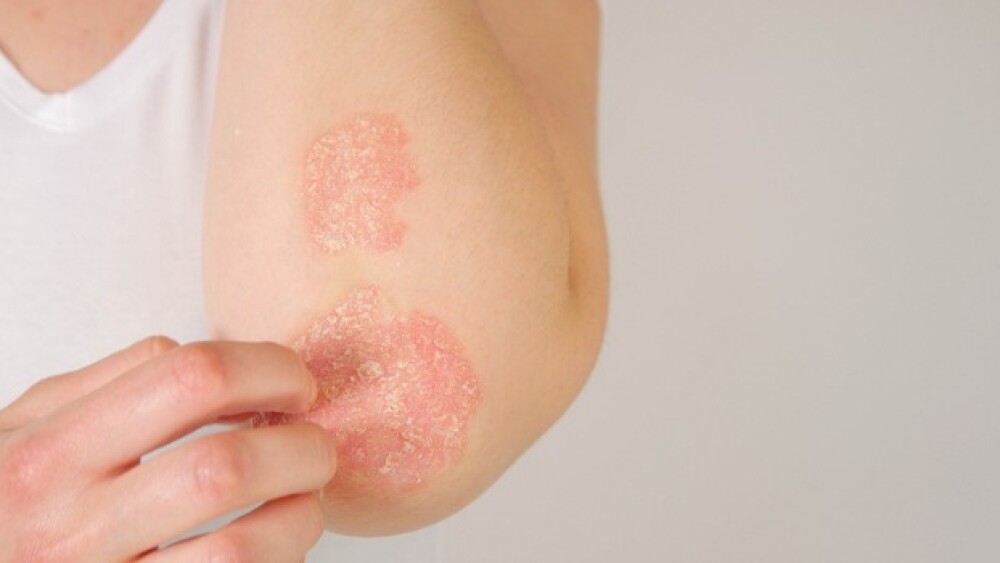The California-based biotech will use the Series C funding to move its TYK2 inhibitor into Phase III in plaque psoriasis this year in a potential challenge to Bristol Myers Squibb and Takeda.
Pictured: Woman scratching skin lesions on her elbow/iStock, helivideo
Alumis has raised $259 million in Series C financing to support Phase III development of a potential rival to Bristol Myers Squibb and Takeda in autoimmune diseases.
The California-based biotech is one of a clutch of companies targeting TYK2, a receptor that is part of the JAK family but potentially less affected by the safety issues that have blighted drugs against its siblings. Unlike JAK inhibitors, BMS’ TYK2 inhibitor Sotyktu (deucravacitinib) came to market without a black box warning. Takeda subsequently paid $4 billion upfront for Nimbus Therapeutics’ TYK2 candidate.
Alumis, formerly called Esker Therapeutics, is trailing the TYK2 frontrunners but contends its challenger, ESK-001, is a potentially best-in-class molecule that can come from behind to claim a piece of the market. Investors have bought into that idea.
Foresite Capital, Samsara BioCapital and venBio Partners co-led the Series C round announced Wednesday. New investors including Cormorant Asset Management, SR One and Lilly Asia Ventures contributed, as did existing backers such as AyurMaya. The financing comes a little more than two years after Alumis raised a $200 million Series B round.
Alumis used the earlier financing to run a Phase II clinical trial in plaque psoriasis and start mid-phase studies in systemic lupus erythematosus (SLE) and non-infectious uveitis. The biotech completed the plaque psoriasis study last summer and will present data at the American Academy of Dermatology Annual Meeting this week.
The presentation will provide the closest look yet at ESK-001. While the trial data are private until then, Alumis’ ability to raise $259 million and decision to move the molecule into Phase III in plaque psoriasis in the second half of 2024 suggest those close to the company are encouraged by the results.
Sotyktu and Takeda’s asset, now called TAK-279, have set the bar for ESK-001. One year ago, Takeda showed that almost 70% of people with moderate-to-severe plaque psoriasis patients had a 75% resolution of their symptoms after 12 weeks on TAK-279. The response rate was higher than that seen in the Phase III trials of Sotyktu, although such cross-trial comparisons can be misleading.
Alumis is working to establish itself as a rival to BMS and Takeda in plaque psoriasis while exploring other applications of ESK-001. Phase II trials in non-infectious uveitis and SLE are scheduled to reach primary completion in September 2024 and May 2025, respectively, according to ClinicalTrials.gov.
TYK2 inhibitors have a mixed record in SLE. The TYK2-JAK1 dual inhibitor Roivant picked up through a deal with Pfizer failed a Phase II trial in November but BMS has seen enough promise in its molecule to start a pivotal program.
Alumis is also looking beyond ESK-001. The biotech will use some of the Series C money to develop other programs. So far, Alumis has publicly named one other drug candidate, a TYK2 molecule A-005, that is in preclinical development as a treatment for neuro-inflammation. The company also has three preclinical programs against undisclosed targets.
Nick Paul Taylor is a freelance pharmaceutical and biotech writer based in London. He can be reached on LinkedIn.






